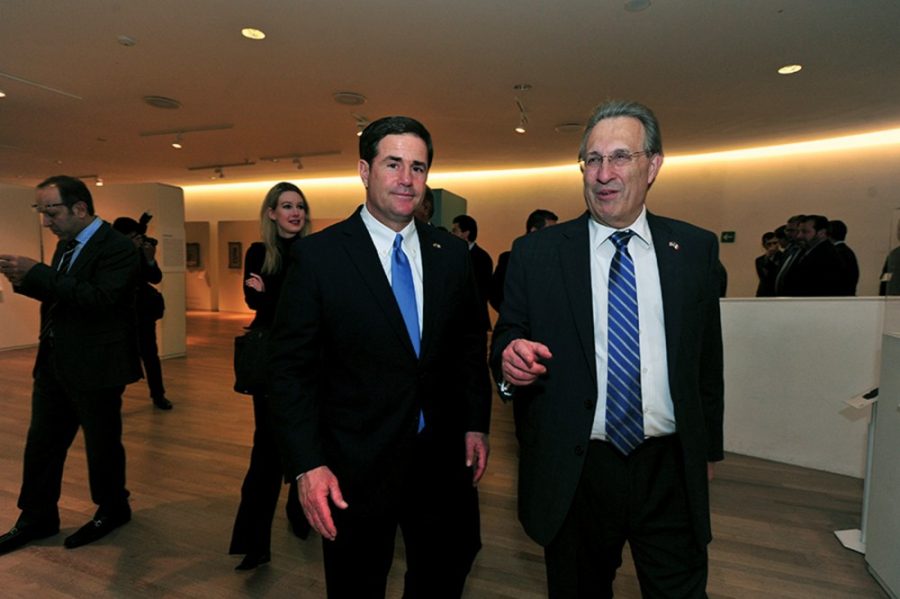Arizona Gov. Doug Ducey’s Executive Budget proposes the redirection of state sales tax paid by Arizona’s public universities towards securing $1 billion dollars in bonds for the universities.
“This plan frees up money for universities so they can reinvest in student programs and grow infrastructure,” said Patrick Ptak, spokesman for governor’s office.
Ptak described the proposal as a fiscally responsible way to grow the universities.
Despite these claims, not everyone is on board with the proposal.
The League of Arizona Cities and Towns sent a resolution to all of Arizona’s legislators opposing the bill, according to Ken Strobeck, executive director of the League.
Arizona uses a tax system where portions of state sales tax revenue are given to cities, towns and counties in proportion with population size.
Strobeck estimates that over the life of the bond, Arizona cities and towns would lose roughly $140 million in revenue, and counties would lose roughly $230 million.
“A significant amount of money,” Strobeck said. “Cities, towns and counties definitely need that money, we have been hit extremely hard by the economy and increasing pension expenses.”
The Arizona Board of Regents supports Ducey’s proposal as does the UA, according to Vice President for Communications Chris Sigurdson.
RELATED: Arizona Board of Regents on board with Ducey’s state budget proposal
“The plan returns sales tax money to the universities and dedicates it to addressing deferred maintenance and funding the development of research infrastructure,” Sigurdson said.
This is money the UA is already spending, and with this additional funding the university will remain below its mandated debt per revenue rate, Sigurdson said.
The UA has $131 million in deferred maintenance costs, which are estimated to reach $1 billion by 2025.
According to Sigurdson, the proposal allows universities to designate funds and borrow favorably, addressing this deferred maintenance and increasing their investments in research.
The regents estimate the five-year economic impact of the proposal to be 2,300 jobs and $1 billion for Arizona’s GDP.
The Arizona Chamber of Commerce in conjunction with multiple city chambers signed a letter to the legislature arguing in favor of the proposal.
“This is the kind of far-sighted investment that will promote learning and discovery, spur additional business development, and ensure these world-class institutions remain competitive and able to educate and train Arizona’s future workforce,” the letter reads.
RELATED: Column: Gov. Ducey’s call for a convention of the states won’t fix the issues our nation faces
The letter cited that in 2015, state universities provided 102,000 jobs and $11.1 billion in total economic impact.
The regents have cited a statistic that states for every “square-foot of research space, universities bring nearly $350 in research money for [Arizona].”
Ptak said the proposal helps universities bolster their reputation and increase research funding and output.
The League of Arizona Cities and Towns viewed the potential economic impact in a different light.
“Everyone always makes the argument that what they are doing is going to be beneficial in the long run,” Strobeck said.
The league worries that by giving the universities a sales tax exemption, other public entities will feel entitled for the same and further diminish cities’ and towns’ share of tax.
Strobeck suggested that if the universities wanted to secure funding for bonds, they should have the state legislature appropriate the money like they do other state agencies.
“The league is not advocating for nor against funding universities we are advocating for the city money to be untouched,” Strobeck said.
Follow Randall Eck on Twitter.









